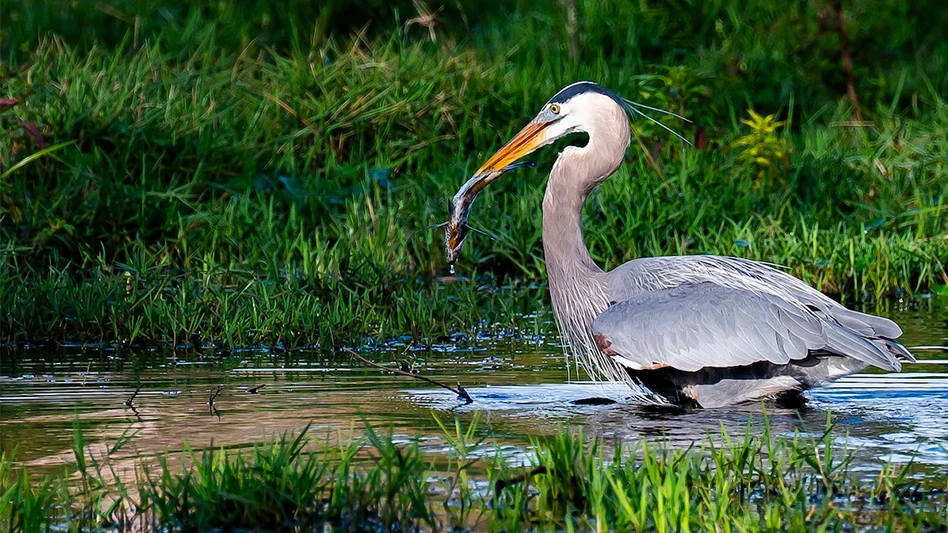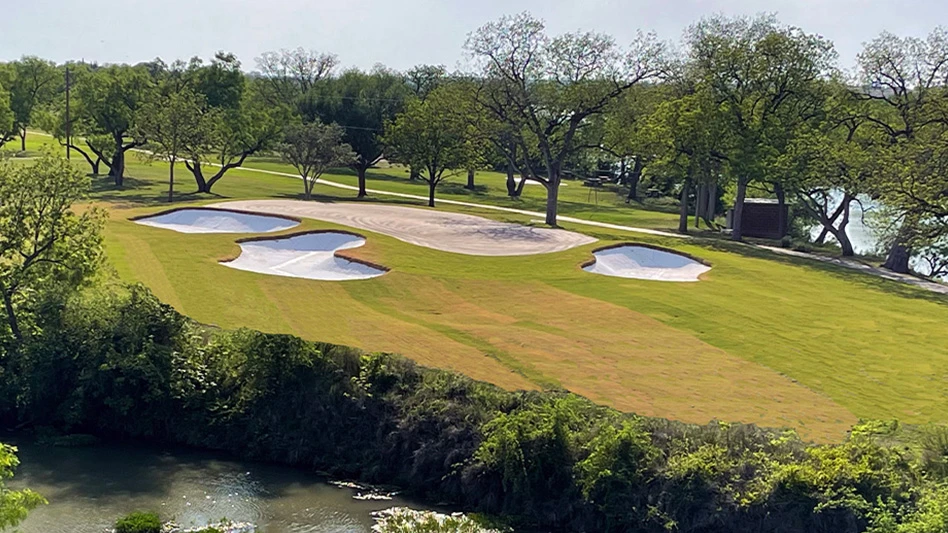Paul Latshaw’s selection to receive this year’s Old Tom Morris Award is an honor well-deserved and a long time in coming. He’s been at the top of our profession for decades, and he joins Sherwood Moore as the only golf course superintendents chosen among the 35 Old Tom recipients. There isn’t a much higher honor in golf and these two guys are more than deserving.
Paul’s selection got me thinking about what sets the very best superintendents apart from the rest of us. I’ve noticed some obvious characteristics.
Education is one. Whether it is from a major university program or from something other than that, good superintendents value not only higher education but also continuing education. They are good plantsmen and understand turfgrass growth and cultivation. They are engaged with their staff, players at their courses and colleagues in our profession.
They not only embrace technology, they often are creating it. Common sense is another common trait, and full engagement (hands-on) on all golf course activities is another. A strong work ethic, flexibility, focus and experience can be seen in these golf course managers. They all love golf, although not necessarily as a player.
But there is one thing the best superintendents possess in plentiful quantities. It is a special instinct that seems to be God given. Or maybe it is genetic. It’s an instinct that could be called “turf clairvoyance.” Some might call this “a sixth sense.” People outside the profession likely would refer to it as a “green thumb.” Whatever it is, it is well recognized, and not just among superintendents.
I recently attended a Wisconsin basketball booster group’s meeting, and our head coach was talking about the shooting slump some of our players were in. He talked about emphasizing the elements of shooting – arc of the shot, position of the hands and feet, location on the floor, game score, and a dozen other factors. “In the end,” he said, “I have to let them fall back to their shooting instincts.”
Arnold Palmer, our first Old Tom Morris Award winner in 1983, wrote about instinct in his book, “A Life Well Played.” In fact, he devotes a chapter to it. He wrote about his involvement with getting the Golf Channel started: “I think if there is any lesson at all with my involvement with Golf Channel, it’s simply to trust your instincts.” I think that is why the best superintendents do better than most. They have very keen golf turf instincts.
A group of Columbia University researchers found that the longer you mull over a decision, the more likely you are to choose the wrong option. Superintendents with good turf instincts will quickly consider their decision options and make a move. And it is usually the right move. They have learned to follow their instinct.
It isn’t just colleagues at our biggest or most famous golf courses or courses that host major golf event each year. Over the 50 years that I have worked in golf turf, I have seen colleagues close to home with a sixth sense that led them to courageous and almost always the correct golf course decision. They have that turf instinct.
Years ago, during an incredibly hot, humid and droughty year, a Wisconsin colleague made a move that no one in the state had ever even imagined. He closed the course for a day in the summer. It was hot, dry, windy and humid; golf courses across the state were suffering. It was a time when there was far more Poa annua than there is now. Closing the course to ease stress, allowing his staff to do lots of syringing and hand watering made sense to him. Closing gave him every opportunity to suspend any mowing operations and not worry about playing conditions. He had the authority to close and he got support from the green committee chair. It worked beautifully and the course suffered far less than those who stayed open for play. When questioned about it, his reply was, “I had a hunch I had to do this.” He followed his instinct.
I am sure you can see this trait in all professions. There are people who seem to nearly always make the right decision – farmers who know when to cut hay even though none of the neighbors are. Bankers often follow instincts on a loan and some investors have excellent instinct on where to put some money. Or a teacher who has a good feeling (instinct) about a struggling student who ultimately goes on to do great things.
As I look back, I now know what my dad meant when he told me: “When things get a little crazy or rushed or almost out of control, or when something has to be decided right now, trust your instinct.”
It was good advice.

Explore the March 2017 Issue
Check out more from this issue and find your next story to read.
Latest from Golf Course Industry
- PBI-Gordon promotes Jeff Marvin
- USGA investing $1 million into Western Pennsylvania public golf
- KemperSports taps new strategy EVP
- Audubon International marks Earth Day in growth mode
- Editor’s notebook: Do your part
- Greens with Envy 66: A Southern spring road trip
- GCSAA’s Rounds 4 Research auction begins
- Quali-Pro hires new technical services manager





